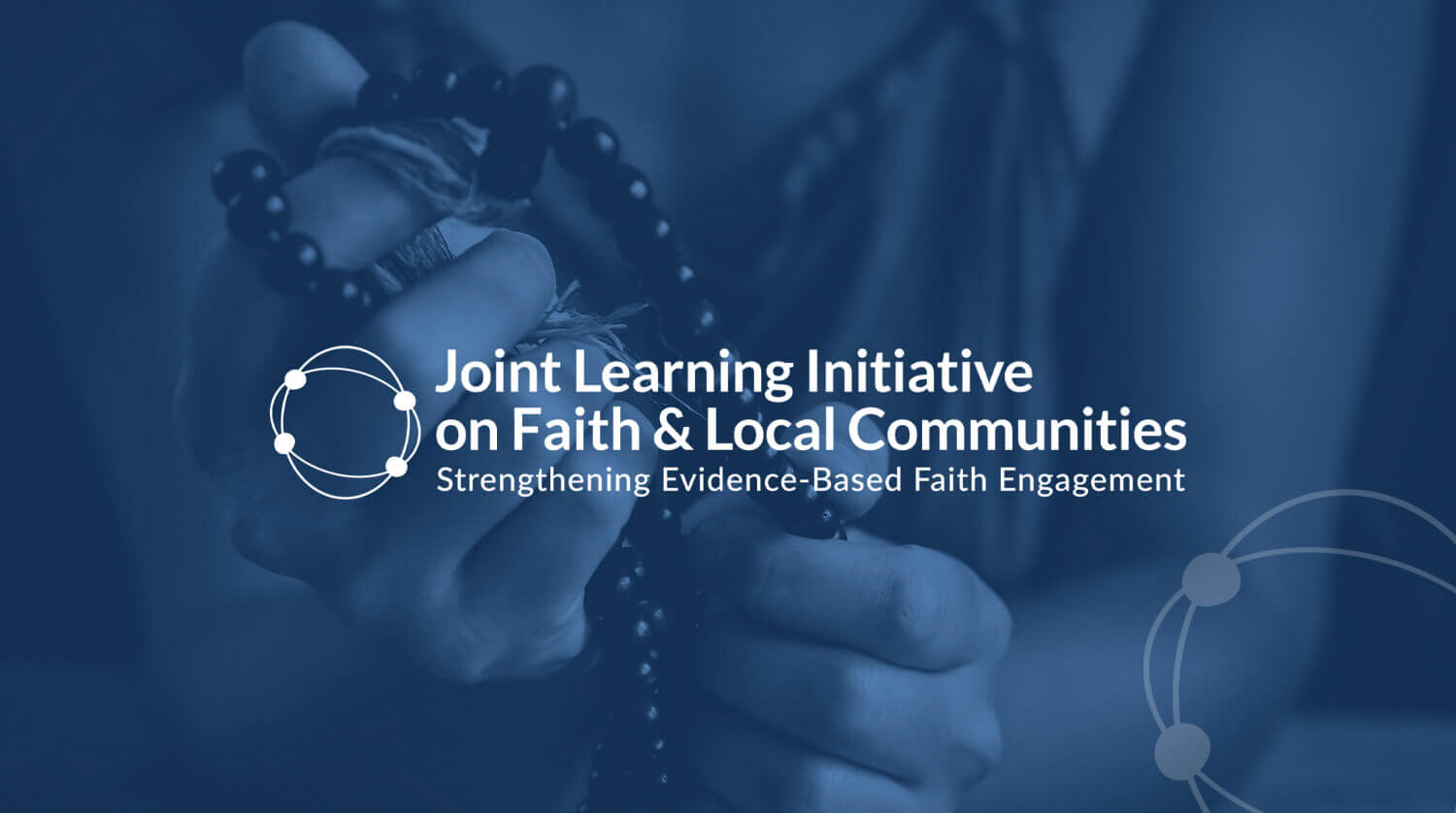Looking back to look forward: COVID-19 and Faith Reflections on 2020-2021 Webinar Series
The Berkley Center, the Joint Learning Initiative on Faith and Local Communities (JLI), and the World Faiths Development Dialogue hosted the third webinar of the series: ‘Two-Year updates from National and Regional Faith Actor COVID-19 Responses’ on April 1, 2022.
Following the 11 March webinar reflecting on global themes at the two-year mark of the COVID-19 pandemic, this session now catches up with faith actors we previously spoke to during webinars in 2020 and asks how the pandemic has evolved in their context since then. We will hear insights from Sri Lanka, Liberia, Senegal and the Latin America region to contextualize the similarities and differences of religious responses to COVID-19 around the world.
Moderators:
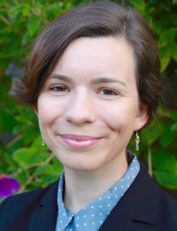
Olivia Wilkinson – Joint Learning Initiative on Faith and Local Communities
Dr. Olivia Wilkinson is the director of research at the Joint Learning Initiative on Faith and Local Communities. Her research focuses on secular and religious influences in humanitarian action, and she is the author of Secular and Religious Dynamics in Humanitarian Response (2020).
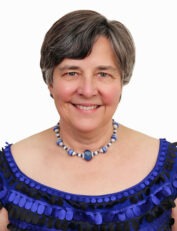
Katherine Marshall – World Faiths Development Dialogue & Berkley Center for Religion, Peace, and World Affairs
Katherine Marshall is a senior fellow at the Berkley Center for Religion, Peace, and World Affairs, where she leads the center’s work on religion and global development, and a professor of the practice of development, conflict, and religion in the Walsh School of Foreign Service. She helped to create and now serves as the executive director of the World Faiths Development Dialogue. She is also vice president of the G20 Interfaith Association. Marshall, who worked at the World Bank from 1971 to 2006, has nearly five decades of experience on a wide range of development issues in Africa, Latin America, East Asia, and the Middle East, particularly those facing the world’s poorest countries. She led the World Bank’s faith and ethics initiative between 2000 and 2006.
Speakers:
Sheikh Saliou Mbacke – President, Cadre des Religieux pour la Santé et le Développement (CRSD), Senegal
Sheikh Saliou Mbacke is the president of Cadre des Religieux pour la Santé et le Développement (CRSD), an interfaith group of Senegalese religious leaders working to promote the health and development of their country, and he also works as an international consultant. He is an advisor to the World Faiths Development Dialogue for a family health project in Senegal. Previously, he served as the continental coordinator for Inter-faith Action for Peace in Africa. He is a spiritual leader of the Mouride family, a core institution of Senegalese Sufi Islam, and has lived within the tradition since birth. He is a member of the International Selection Committee for the Niwano Peace Prize and has collaborated with the United Nations on religious defamation and climate change. He was educated in Touba in the Islamic Qur’anic tradition, then at the University of Tunis and University of Salamanca.

Sister Barbara Brillant – F.M.M., Dean, Mother Patern College of Health Sciences and national health coordinator for the National Catholic Health Council, Liberia
Sister Barbara Brillant, F.M.M., is the dean of Mother Patern College of Health Sciences in Monrovia, Liberia and national health coordinator for the National Catholic Health Council. An American citizen, she has lived in Liberia for almost 40 years. Brillant is a missionary with the Franciscan Missionaries of Mary who originally trained as a nurse and midwife and has a master’s degree in public health from Boston University.
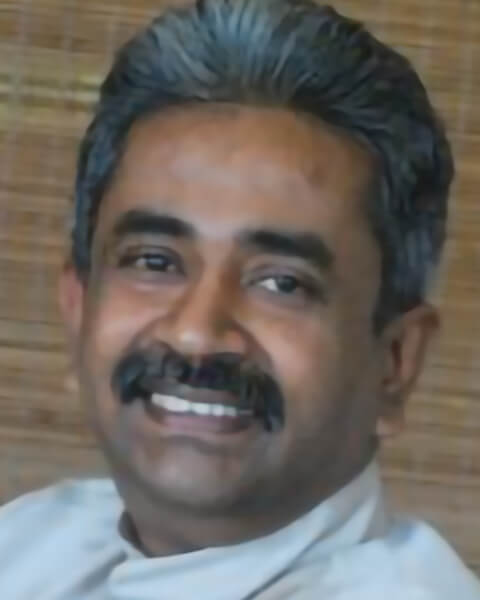
Vinya Ariyaratne – M.D., President, Sarvodaya Shramadana Sangamaya, Sri Lanka
Vinya Ariyaratne, M.D., is president of the Sri Lankan Sarvodaya Shramadana Sangamaya, an NGO founded by his father in 1958 and inspired by Buddhist principles. He was also founding chairman of Deshodaya Development Finance Company (DDCC), Sarvodaya’s microfinance arm. Ariyaratne has been a lecturer at the Liverpool School of Tropical Medicine, the Faculty of Medical Sciences of the University of Sri Jayewardenepura, and Brandeis University. He is currently involved in conflict resolution and peacebuilding, acting as lead facilitator for the One Text Initiative and as a member of the Council of the Arigatou Foundation’s Global Network for Children. He holds a doctorate in medicine from De La Salle University in the Philippines, a doctorate in community medicine from the Postgraduate Institute of Medicine of the University of Colombo, and a master’s degree in public health from Johns Hopkins University.

Mr Elias Szczytnicki – Secretary General & Regional Director – Religions for Peace, Latin America and the Caribbean
Elías Szczytnicki serves as the secretary general of the Latin American and Caribbean Council of Religious Leaders (LACCRL) and the director of the Latin American and Caribbean Regional Office of Religions for Peace. As LACCRL Secretary General, Mr. Szczytnicki organizes high level meetings of religious leaders with important international personalities, including Pope Francis. He also represents the LACCRL in various meetings of the United Nations and their agencies.
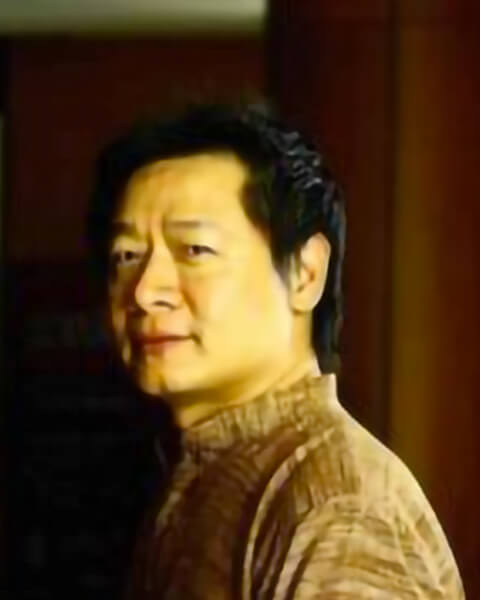
Somboon Chungprampree – Executive Secretary of International Network of Engaged Buddhists (INEB), Thailand
Somboon Chungprampree (Khun Moo) is a Thai social activist working for peace and justice in Asia. He became involved in Thai student movements, especially those focused on environmental justice, while he was at university. Since 1997, he has held different positions with key Thai and Asia regional and international civil society organizations. They include Sathirakoses-Nagapradipa Foundation (SNF), a Thai NGO established in 1968, Spirit in Education Movement (SEM), focusing on empowering civil society in Burma, Laos PDR, Cambodia, and Thailand, School for Well-being Studies and Research, and Wongsanit Ashram. He has served as Executive Secretary of the International Network of Engaged Buddhists (INEB) since 2010. He is the editor of the Seeds of Peace journal issued three times a year. As a civic leader he serves on the boards of several international and national foundations.
Watch the previous webinars of the series:

